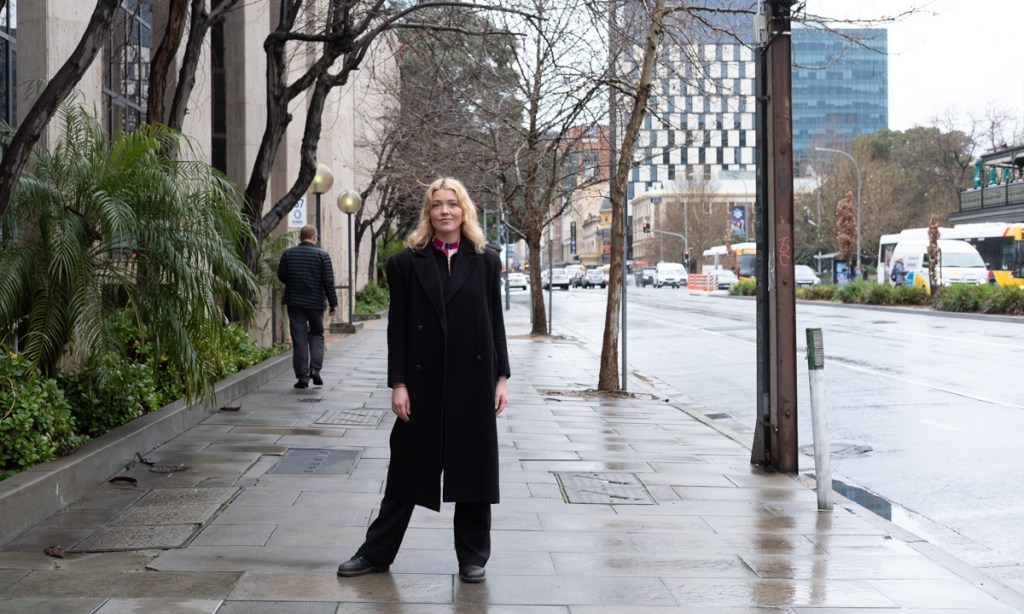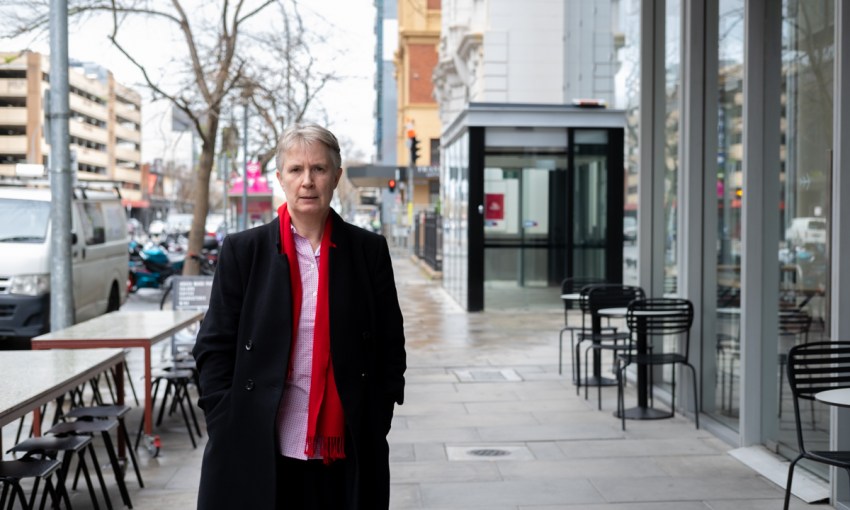Equal Opportunity Commissioner Jodeen Carney wants to set up a review into the state's hospitality industry’s workplace culture following a series of worker complaints - but says industry groups don't want to fund it.
‘Exploited, harassed’: Call for review into hospitality industry
The hospitality industry is “rife” with bullying, exploitation and harassment, Equal Opportunity Commissioner Jodeen Carney tells CityMag – but she says some peak bodies are underplaying the extent of the problem.
Carney calls for review into the state’s hospitality industry in the Equal Opportunity Commission’s 2021-22 Annual Report, tabled in parliament at the end of September.
In her report, the commissioner says that over the last six months “a number of approaches have been made to my office about bullying, intimidation, harassment and discriminatory conduct in several industries, most notably the hospitality sector”.
“Some industry representatives have advised that such conduct is commonplace and that underreporting, a well-known hallmark of sexual assault and harassment, is widespread,” Carney wrote.
The commissioner has also met with a range of industry bodies and says they told her they aren’t prepared to fund such a review, which she believes will give a clearer picture of the size of the issue.
Without funding, Carney says her office doesn’t have the resources to conduct the wider examination of the industry.
The commissioner says that in June she met with with a range of hospitality industry organisations – the Australian Hoteliers Association (AHA), Clubs SA, SA Unions, Restaurant & Catering Industry Association, SA Wine Industry Association and Hostplus – and was met with some resistance.
“The purpose of the meeting was to ascertain their understanding of the extent of discrimination and sexual harassment in the industry, and to ascertain as to whether they would be prepared to fund a review,” Carney tells CityMag after her report was submitted to parliament.
She says the groups indicated they were “not prepared to contribute to the funding of a review”.
Carney is also “troubled” that due to a lack of data on sexual harassment and assault in the industry, some organisations “took the view that there was very little discriminatory behaviour”.
In the last two reviews her office has undertaken – into the parliamentary workplace and the legal profession – Carney says the process uncovered that “people under-report sexual harassment”.
“The experience of those reviews was that once a review was undertaken and members of those sectors were surveyed, through the cover of an anonymous survey, they in some cases provided very stark and distressing incidences of sexual harassment,” she says.
“I’m not sure why some think the hospitality industry is different from other sectors.”
Through her office, Carney is aware that “particularly young people are being exploited, harassed, and discrimination is rife”.
“Now, as the Equal Opportunity Commissioner, it would be neglectful of me just to thank them for their call and not to do anything about it,” she says.
“Even though some in the industry might say there’s no problems whatsoever, the fact is I have to be alive to the issues that are put before me.
“My office is not resourced to undertake a review at this time – hence the request for a financial contribution from the industry.”
She says there are two options for funding a review: seconding public servants to the Office to work on the review, or work with UniSA to undertake a review, which would be done at a cost.
“The events that led to the very good resourcing of the parliamentary review and the legal profession review were public events that caused distress to many people, and that piqued the interest of politicians who were then at one about the need for a review. So it was a series of public events that caused the review, and resources to the office followed,” Carney says.
“Despite what I’m hearing, despite what you’re publishing, despite the Not So Hospitable website and so on, there doesn’t seem to have been the same level of interest thus far, or determination to have a review.”
CityMag asked the CEO of the South Australian chapter of the AHA, Ian Horne, about his understanding of the nature of sexual assault and harassment in the hospitality industry, whether a review was necessary, and whether his organisation was open to contributing to funding a review. We did not receive a direct response to our questions.
In a statement, Horne said a review occurring within the next one to three years “is no doubt [a] good thing as this Association remains readily available to continue discussions and look [at] how to ensure our members can continue to received (sic) advice and support to ensure that they can manage any instances of harassment and discrimination amongst staff and/or patrons”.

Jamie Bucirde
Though there is currently a lack of official data, there are groups associated with the hospitality sector gathering information on poor behaviour within the industry.
Not So Hospitable is a website that collects testimonials from people within the industry who have experienced sexual assault and harassment. The website’s founder, Jamie Bucirde, says the platform has received almost 400 submissions since it went live in August.
The information is yet to be analysed, but she has seen some trends emerge.
“The majority of testimonies are coming from women working in hospitality where the perpetrator has been someone in a higher position of power to them,” she says.
“And it’s a really common theme that these women have actually tried to report it, or told someone – whether that’s a manager or another staff member in a position of power – and they’re actually either bullied out of the business or it’s completely ignored or brushed under the rug.”
The Office of the Equal Opportunity Commissioner has also worked with the United Workers Union to gain an understanding of problems within the hospitality sector.
Louise Dillon, a co-ordinator for the union, says her team is currently conducting a hospitality industry survey, aiming to formally capture stories of bad behaviour in the sector – stories the union is already familiar with through workers calling her office.
“We have a members’ rights team, and their job is to answer phone calls as they come in,” Louise says.
“We have stories of workers who have been sexually harassed by their bosses, they’ve been sexually harassed by customers, bullying is endemic. So we have a fair bit of data, but reaching out and giving more workers this chance to voice themselves has been actually really, really good.
“Sad, I have to say. Listening to some of the stories, it’s heartbreaking, because they just don’t have anywhere else to go.”
Discussions between the Office of the Equal Opportunity Commissioner and the group of hospitality organisations Carney met with in June are ongoing, and a spokesperson for the Malinauskas Government says it “supports the Commissioner’s continued discussions with industry and unions around this matter”.
However, Carney hopes stories such as those that will come from Not So Hospitable and the United Workers Union’s survey will be helpful in bringing the review to fruition, and encourage others to share their stories.
“If one looks at the birth of the MeToo movement, tracks that to those very brave women, associates in the High Court who came out against Dyson Heyden and others – there are pivotal points that create a momentum and embolden those who are affected to make complaints,” she says.
Not So Hospitable founder Jamie Bucirde will represent her fledgling initiative at a Reclaim the Night rally dedicated to hospitality workers, happening on 28 October at Murlawirrapurka Rymill Park. She hopes a large turnout might help to instigate the review.
“I’m really hoping that with a protest like that, if we can get enough people involved, it’ll actually really get the government’s attention, in order to start moving down the path of doing an enquiry,” Jamie says.
“It’s going to come from media attention, it’s going to come from community pressure, it’s got to come from things like protests, as well as associated data.
“If people are saying they’re getting abused or assaulted or bullied within an industry – 400 people have come forward in under two months – it’s time to listen to that, and it’s time to listen to people’s lived experiences.”
Jamie believes a review shouldn’t be such a tough sell to the industry at large.
“Something that I really want to keep reminding people, is that this is a good thing and it’s a win-win for everyone,” she says.
“I think it’s time to start prioritising the staff within venues as much as we’re trying to prioritise the things that we’re serving – especially in Adelaide, because we’re the cultural hub of wine and good food in Australia.
“I think solidifying and really highlighting how our staff are treated, and treating staff with respect and dignity and giving them great working conditions, is going to strengthen the industry, and that’ll really help the industry keep going in a quite difficult, quite scary time.”




